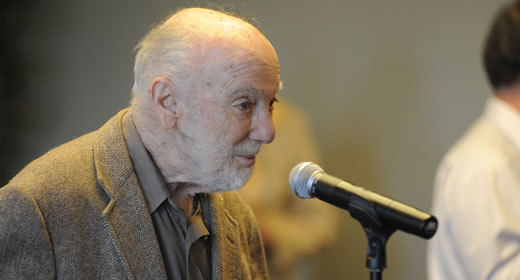
We are deeply saddened to report that Robert M. Stern, professor emeritus of economics and public policy, passed away yesterday after a week-long hospital stay for heart trouble.
Bob joined the faculty of the University of Michigan in 1961 and the Institute for Public Policy Studies (predecessor to the Ford School) in 1983. He was among the first professors appointed to the faculty when the institute became the School of Public Policy in 1995.
Bob was internationally renowned for his expertise in multilateral trade agreements and the economic impact of regional trade arrangements. He consulted regularly for a wide variety of U.S. and international entities seeking to understand and improve trade relations.
Bob was perhaps best known for developing, with Alan Deardorff, the Michigan Model of World Production and Trade—a computer-based model used to analyze the impact of trade agreements.
“Bob was a major reason the Ford School and University of Michigan became known as leaders in international economics,” says Deardorff, who worked closely with Bob throughout his career. “He was always incredibly generous with his time and advice; and he was universally loved by students.”
While Bob retired from active faculty status at the University of Michigan in 1999, he continued to teach on the Ford School faculty until 2010, when he moved to northern California to be closer to family. Following his move, he began teaching courses at the University of California-Berkeley, and taught there through the fall of 2014.
A festschrift book, Quiet Pioneering: Robert M. Stern and His International Legacy, was published as a tribute to Bob’s legacy in 1997. In 2011, “My Studies in International Economics,” recounting Bob’s personal and professional development, was published in the volume Eminent Economists II: Their Life and Work Philosophies (Cambridge University Press).